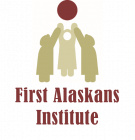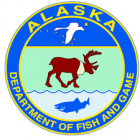Tamamta (All of Us): Transforming Western and Indigenous Fisheries and Marine Sciences Together
The National Science Foundation Research Traineeship (NRT) award to the University of Alaska Fairbanks (UAF) will use Indigenous approaches to transform graduate education programs in fields that tend to lack cultural diversity within academia as well as the workforce; fisheries and marine science. The Tamamta (a Sugpiaq word meaning "All of Us") NRT seeks to broaden and diversify graduate training to successfully engage Indigenous students, to center Indigenous knowledge systems in current and new curricula, and to reach widely across the university and partner organizations toward larger system change. This NRT closely aligns with NSF's Navigating the New Arctic program and with UAF's strategic goals of solidifying global leadership in Alaska Native and Indigenous programs and growing a culture of respect, diversity, inclusion, and care. As the gravity of environmental and social challenges in the Arctic continues to intensify, the need for bold and transformative action that crosses cultural, racial, and disciplinary boundaries grows. To respond to this need, the Tamamta traineeship program will support comprehensive graduate training that advances science that meaningfully and ethically bridges Western and Indigenous knowledge systems for 15 to 20 Indigenous and non-Indigenous M.S. and Ph.D. NRT trainees. The Tamamta program will reach over 100 students over the course of the project and will engage federal, state, and tribal partner organizations toward larger system change within fisheries and marine science and management in Alaska and beyond.
Over the past five years, the Tamamta project team of Indigenous scholars, social scientists, and natural scientists has worked across cultural and disciplinary boundaries to build strong, collaborative relationships. This investment and the mutual respect and trust that have grown as a result are necessary to advance the goals of this work in effective and culturally appropriate ways. The research team uses evidence-based and Indigenous approaches to transforming graduate educational programs including an elevation of Indigenous ways of knowing and being, Indigenous rights and values, Indigenous knowledge, language, stories, and practices. This traineeship program supports interactive and innovative activities to help transform the fisheries and marine sciences programs and catalyze change in institutions and partner organizations. These activities will include: new team-taught interdisciplinary courses; an Elder-in-Residence program; a visiting Indigenous scholars program; a fish camp and other cultural immersion experiences; professional development and cultural competency skill-building with faculty and agency partners; retreats; internships; coastal research experiences; hosted dialogues; and art installations. By centering Indigenous cosmologies, values, practices, and knowledge in all aspects of the program, Tamamta aims to elevate an understanding of the profound cultural and spiritual connections that Indigenous peoples across Alaska have with the land, waters, and animals. By creating meaningful educational opportunities for Indigenous peoples and their values, practices, and knowledge to engage in science and management systems, this effort will contribute to larger system changes that are needed to ensure more sustainable fisheries and ecosystems for current and future generations.
The NSF Research Traineeship (NRT) Program is designed to encourage the development and implementation of bold, new potentially transformative models for STEM graduate education training. The program is dedicated to effective training of STEM graduate students in high priority interdisciplinary or convergent research areas through comprehensive traineeship models that are innovative, evidence-based, and aligned with changing workforce and research needs.
Co-funding for this award is being provided by Navigating the New Arctic (NNA) program, one of NSF’s ten Big Ideas. NNA supports projects that address convergence scientific challenges in the rapidly changing Arctic, empower new research partnerships, diversify the next generation of Arctic researchers, enhance efforts in formal and informal education, and integrate the co-production of knowledge where appropriate. This award aligns with those goals.
Principal Investigators









